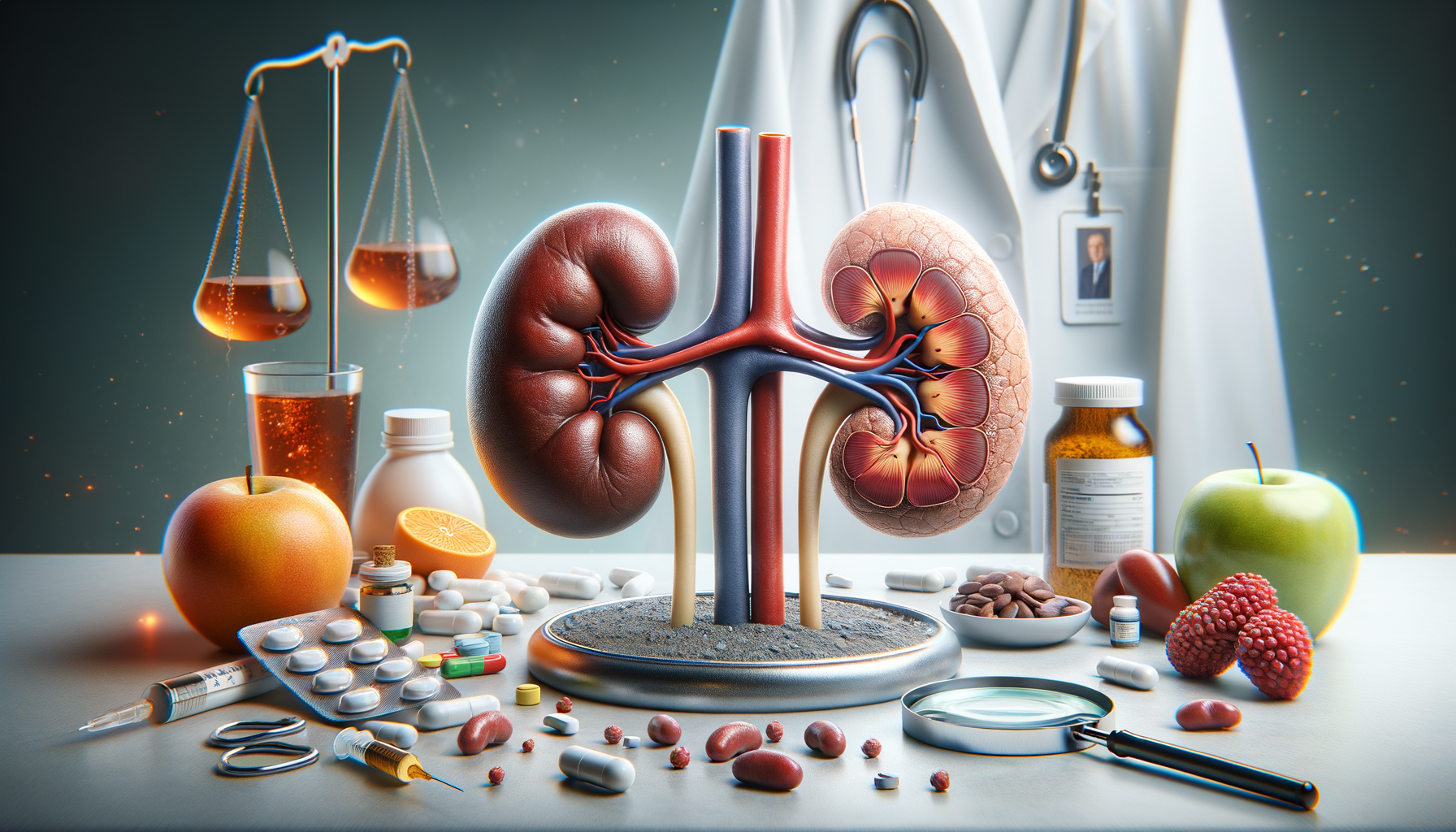Understanding Kidney Disease: Essential Insights
Explore the critical aspects of kidney disease, its implications, and how it affects individuals worldwide.

Introduction to Kidney Disease
Kidney disease is a prevalent health condition that affects millions of individuals globally. The kidneys, which are vital organs responsible for filtering waste and excess fluids from the blood, can suffer from various disorders that impair their function. Understanding kidney disease is crucial because it can lead to severe health complications and significantly impact a person’s quality of life. The importance of early detection and management cannot be overstated, as these can prevent progression to more serious stages, including kidney failure.
The kidneys play a pivotal role in maintaining the body’s internal balance. They regulate blood pressure, produce hormones that influence the production of red blood cells, and maintain electrolyte balance. When kidney function declines, these processes are disrupted, leading to a cascade of health issues. Therefore, recognizing the signs and symptoms of kidney disease is essential for timely intervention and treatment.
Types and Causes of Kidney Disease
Kidney disease can be classified into several types, each with distinct causes and characteristics. Chronic kidney disease (CKD) is the most common form, characterized by a gradual loss of kidney function over time. It is often caused by conditions such as diabetes and hypertension, which are prevalent in many populations. Acute kidney injury (AKI), on the other hand, is a sudden and severe condition that can result from trauma, infections, or the use of certain medications.
Other types of kidney disease include polycystic kidney disease, a genetic disorder that leads to the formation of cysts in the kidneys, and glomerulonephritis, an inflammation of the kidney’s filtering units. Each type has unique risk factors, and understanding these can aid in prevention and management. For instance, maintaining healthy blood pressure and blood sugar levels can significantly reduce the risk of CKD.
Furthermore, lifestyle factors such as diet, exercise, and smoking can influence the development of kidney disease. A diet high in sodium and processed foods can strain the kidneys, while regular physical activity and smoking cessation can support kidney health. Addressing these factors is crucial for preventing kidney disease and promoting overall well-being.
Symptoms and Diagnosis
Kidney disease often progresses silently, with symptoms not appearing until significant damage has occurred. Common symptoms include swelling in the legs and ankles, fatigue, difficulty concentrating, and changes in urination patterns. However, these symptoms can be easily overlooked or attributed to other conditions, highlighting the importance of regular check-ups and screenings, especially for those at higher risk.
Diagnosing kidney disease typically involves a combination of blood tests, urine tests, and imaging studies. Blood tests measure levels of creatinine and urea, which can indicate kidney function. Urine tests assess the presence of protein or blood, which can signal kidney damage. Imaging studies such as ultrasounds or CT scans provide detailed views of the kidneys, helping to identify structural abnormalities.
Early detection is key to managing kidney disease effectively. Regular monitoring of kidney function in individuals with risk factors such as diabetes or hypertension can lead to earlier interventions, slowing disease progression and preventing complications.
Treatment and Management
Managing kidney disease involves a multifaceted approach that includes lifestyle modifications, medication, and in some cases, dialysis or transplantation. The primary goal is to slow the progression of the disease and manage symptoms to improve quality of life.
Lifestyle changes such as adopting a kidney-friendly diet, which is low in sodium, potassium, and phosphorus, can help reduce the workload on the kidneys. Regular exercise and maintaining a healthy weight are also beneficial. Medications may be prescribed to control blood pressure, manage diabetes, and address other underlying conditions contributing to kidney disease.
For advanced stages of kidney disease, dialysis or kidney transplantation may be necessary. Dialysis performs the function of the kidneys by filtering waste from the blood, while transplantation involves replacing a diseased kidney with a healthy one from a donor. Both options require careful consideration and planning, as they come with their own sets of challenges and lifestyle adjustments.
Living with Kidney Disease
Living with kidney disease requires ongoing management and adaptation to maintain health and well-being. Education and support are vital components of this journey, as they empower individuals to make informed decisions about their care.
Support groups and counseling can provide emotional support and practical advice for coping with the challenges of kidney disease. Connecting with others who have similar experiences can be reassuring and help reduce feelings of isolation. Additionally, healthcare providers play a crucial role in guiding patients through treatment options and providing resources for managing the disease.
It’s important for individuals with kidney disease to maintain open communication with their healthcare team. Regular follow-ups, adherence to treatment plans, and monitoring of symptoms are essential for effective disease management. By taking an active role in their health, individuals can achieve a better quality of life despite the challenges posed by kidney disease.